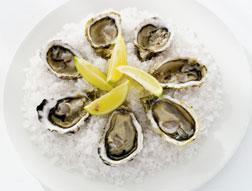- Joined
- Jan 3, 2016
- Reaction score
- 1,994
- Age
- 45
- Lifestyle
- Vegetarian
According to Jeremy Bentham in his 1879 publication An Introduction to the Principles of Morals and Legislation, "The question is not, Can they reason? nor, Can they talk? but, Can they suffer?" This came in the context of defending animal rights. The viewpoint that ability to suffer was the main (or even only) thing that mattered in determining rights was later popularized by Peter Singer in his 1975 book Animal Liberation, and, consequently, within the animal rights movement since then, although I've never been fully convinced that suffering and pleasure should be so dominant.
I was interested to hear the philosopher David Chalmers in a podcast talk about the ability to reason and be conscious and have sensory experiences, even in the absence of ability to suffer or feel pleasure, as having value and conferring moral status making it wrong to kill such a being. I'm intuitively inclined to agree with this viewpoint.
It's an interesting discussion that I recommend here. The part of interest is an 18-minute segment of a 4hour+ podcast. You can listen to Chalmers in conversation with Rob Wiblin and Arden Koehler of 80,000 hours by joining at 2:38:07 and going to 2:56 where Arden says "move on". Where they use the terms "affect" and "valence" they refer to feelings/emotions (including pleasure and pain).
The debate about whether or not ability to reason and be conscious and have sensory experiences should take a similar weight to ability to suffer, or much less, in determining rights or value of a being does not really greatly impact core vegan/animal rights questions. For example, eating meat is bad either way. It would likely affect marginal cases. It might have more impact in determining rights or worth of non-mammals, including fish and insects, where the ability to determine how much pain they feel becomes less clear cut.
If nothing else, it's an intellectually stimulating discussion.
I was interested to hear the philosopher David Chalmers in a podcast talk about the ability to reason and be conscious and have sensory experiences, even in the absence of ability to suffer or feel pleasure, as having value and conferring moral status making it wrong to kill such a being. I'm intuitively inclined to agree with this viewpoint.
It's an interesting discussion that I recommend here. The part of interest is an 18-minute segment of a 4hour+ podcast. You can listen to Chalmers in conversation with Rob Wiblin and Arden Koehler of 80,000 hours by joining at 2:38:07 and going to 2:56 where Arden says "move on". Where they use the terms "affect" and "valence" they refer to feelings/emotions (including pleasure and pain).
The debate about whether or not ability to reason and be conscious and have sensory experiences should take a similar weight to ability to suffer, or much less, in determining rights or value of a being does not really greatly impact core vegan/animal rights questions. For example, eating meat is bad either way. It would likely affect marginal cases. It might have more impact in determining rights or worth of non-mammals, including fish and insects, where the ability to determine how much pain they feel becomes less clear cut.
If nothing else, it's an intellectually stimulating discussion.


